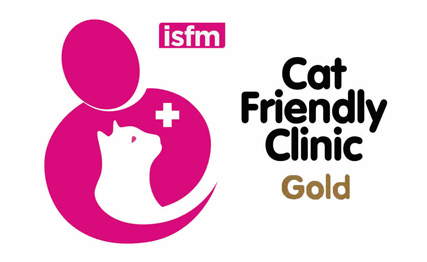24 hour contact: 020 7387 8134
Dog and Puppy Neutering
The decision whether or not to have your dog neutered can be daunting. We are here to help you decide what option is best. Here are the most commonly asked questions about dog neutering, dog castration and bitch spaying
What is dog neutering?
Neutering is a surgical procedure to spay or castrate your dog to ensure they are no longer able to breed.
What is dog spaying?
Spaying your dog involves the surgical removal of the ovaries (and sometimes the uterus). This procedure is called an ovariectomy/ ovariohysterectomy, or spay. Spaying is used to prevent unwanted pregnancy, seasons and to reduce the risk of womb infections (pyometra) and mammary cancer.
What is dog castration?
Surgical castration is the removal of both testicles. Chemical castration uses pharmaceutical drugs to deactivate the testes. Pet castration is used for birth control, behaviour management and to treat some prostate conditions.
What happens when my dog is neutered?
Neutering operations are performed under a general anaesthetic. Pets are then carefully monitored after surgery by our highly-qualified and registered veterinary nurses.
When do puppies have their first season?
Puberty (the period of sexual maturation and coming into season) in the female dog is variable, usually between 6–14 months. Small breeds often reach puberty earlier than larger breeds. Note that behavioural and social maturity may be reached between 12 and 24 months of age and is suspected to differ depending on the breed.
Puberty (the period of sexual maturation) in the male dog is considered to occur between 6 and 9 months of age. Note that behavioural and social maturity may be reached between 12 and 24 months of age and is suspected to differ depending on the breed.
How often do dogs come into season?
Most dogs go into heat twice a year (every 6 months). However, the interval can vary from dog to dog. Small breeds tend to cycle more frequently (and can come into season three times per year). Very large breeds, like Great Danes and St. Bernards, may only go into heat once a year.
How old should a puppy be in order to be neutered?
The recommended age for neutering your puppy will depend upon a mix of factors including your puppy’s health, gender; weight and, in some instances, their breed.
Male puppies/dogs – best time to neuter
For male puppies, we recommend they are neutered between six and thirteen months old for optimum health benefits. There are breed specific exceptions to this so please ask our reception team for our more detailed information sheet for further information. Traditional early neutering of male dogs has been linked via research to an increased risk of joint disorders and some cancers.
For these reasons, our recommendations are:
- Dogs expected to weigh less than 20kg: male puppies/dogs can be castrated from 6 months old onwards.
- Dogs expected to weigh more than 20 kg – dogs can be castrated from 1 year of age
Female puppies/bitches – best time to neuter
Again, this is affected by the expected adult weight of the bitch:
- For female dogs less than 20 kg – we recommend they can be spayed from 6 months old (usually 3 months after their first season and ideally before their second season)
- For female dogs more than 20 kg - we recommend they can be spayed from 12 months old and ideally three months after their second season)
There are some breed exceptions – please discuss the best timings with your vet or request a more detailed information sheet from our reception team.
How long does a dog neutering operation take?
Neutering dogs is also a relatively quick procedure, especially males, which helps keep the risk low. In most cases your dog will be reunited with you the same day.
Where can I get my dog neutered?
Here at the RVC Beaumont Sainsbury vet practice, we offer a full dog neutering service.
When can I get my dog neutered?
We run neutering clinics Monday to Friday (advance booking required).
Before you can book an appointment to neuter your puppy/dog - you will need to register with us
Is you pet already registered with us? Call us to book your neutering appointment on 0207 387 8134
How much does dog spaying/neutering cost ?
Your pet’s spaying/neutering costs will vary according to the type of neutering involved and your puppy/dog's weight.
Prices for standard dog or puppy castration are:
Castration:
0-10kg £260
11kg-25kg £271
26kg-40kg £281
41kg+ £292
Prices for standard dog or puppy spay are:
Spay:
0-10kg £323
11kg - 25kg £344
26kg - 40kg £365
41kg + £386
The dog/puppy neutering prices are inclusive of the operation, 2 x post-operative checks, pain relief and a buster collar. Pets that have not been examined by our vets in the previous 6 months may require a health check prior to booking, this would be charged at the standard rate (£58)
We are also able to offer keyhole spay surgery, which results in a faster recovery and much smaller surgical wound. The cost of keyhole spay surgery is between £775 and £925 depending on weight. More information on our page - Keyhole spay/laparoscopic neutering
Why is dog neutering something I should consider?
Neutering/spaying female dogs can have a number of advantages
- prevention of unwanted pregnancies
- prevention of bleeding indoors associated with coming into 'season' or 'heat'
- reduction of the risk of mammary gland (breast) tumours (There are other influential factors such as obesity and breed susceptibility)
- reduction of the risk of having an infected uterus (pyometra) (NB Some breeds have an increased susceptibility)
Advantages of neutering/castrating of male dogs include
- reduction in unwanted puppies being born (adding to animal shelter population)
- reduction in difficult behaviours such as frequent urine marking; mounting, and roaming
- reduction in aggression with other dogs and consequential injuries/diseases
- elimination of testicular cancer (if your dog is found to have an undescended testicle)
- reduction in risk of benign prostatic hyperplasia (BPH)



